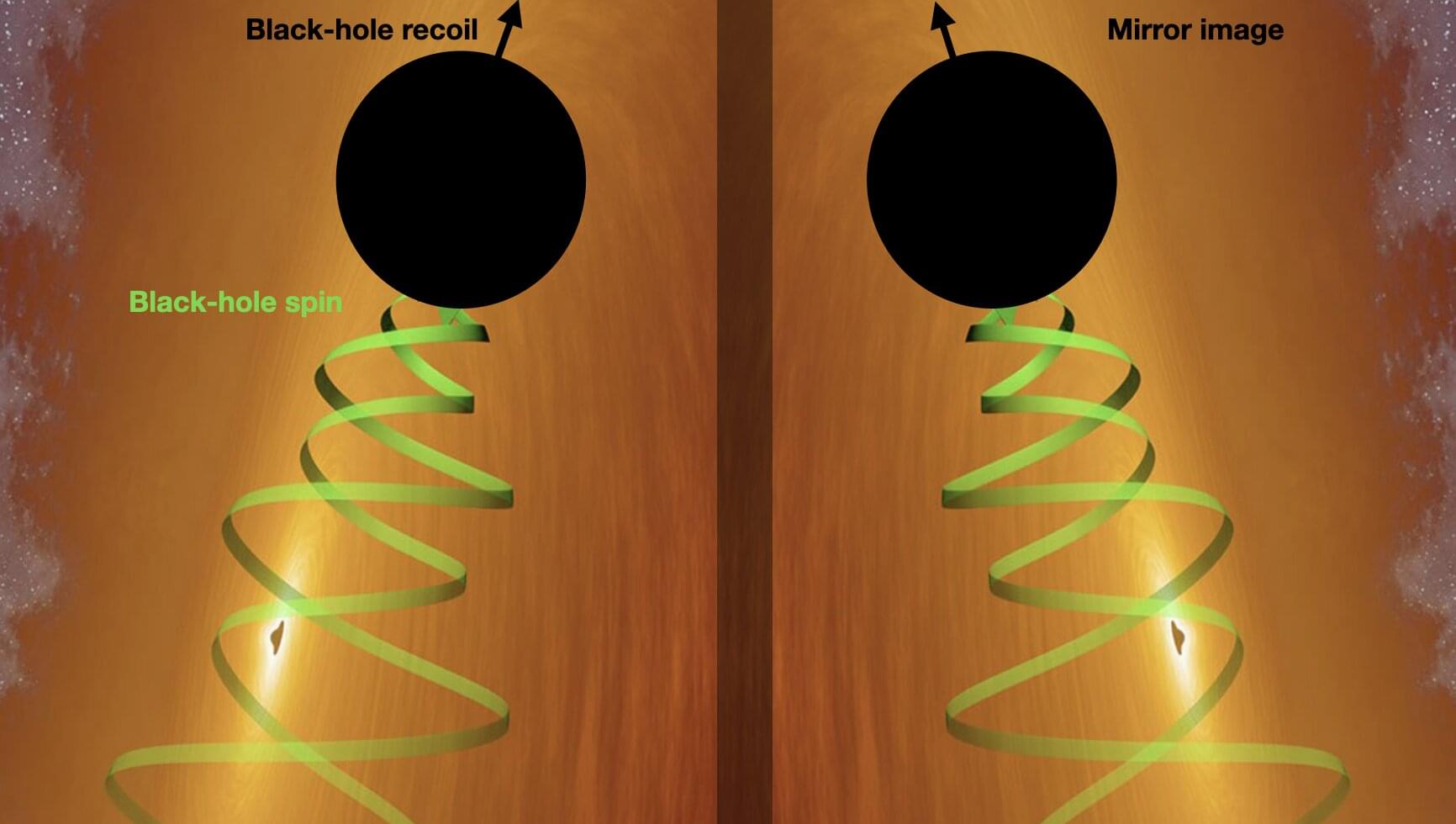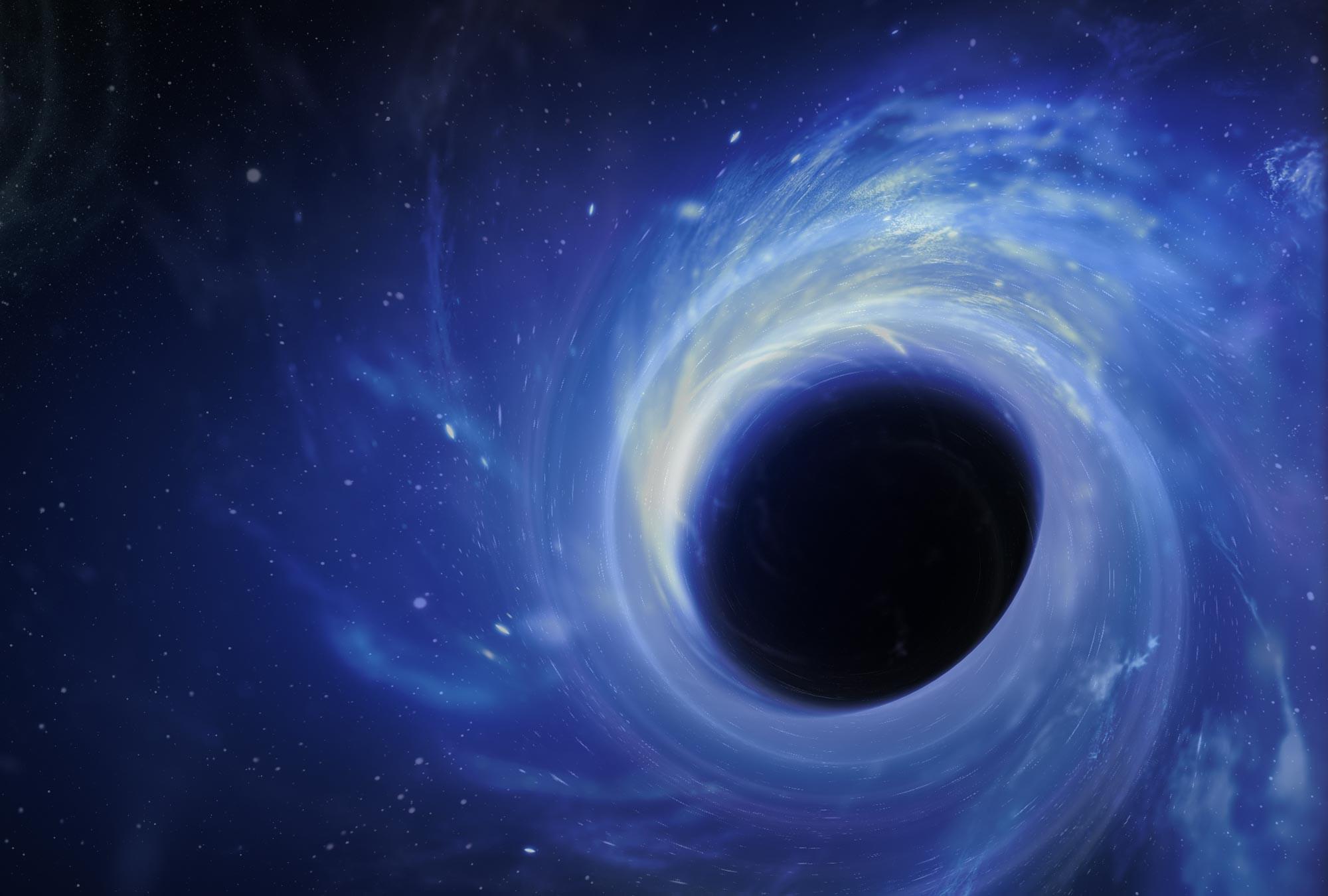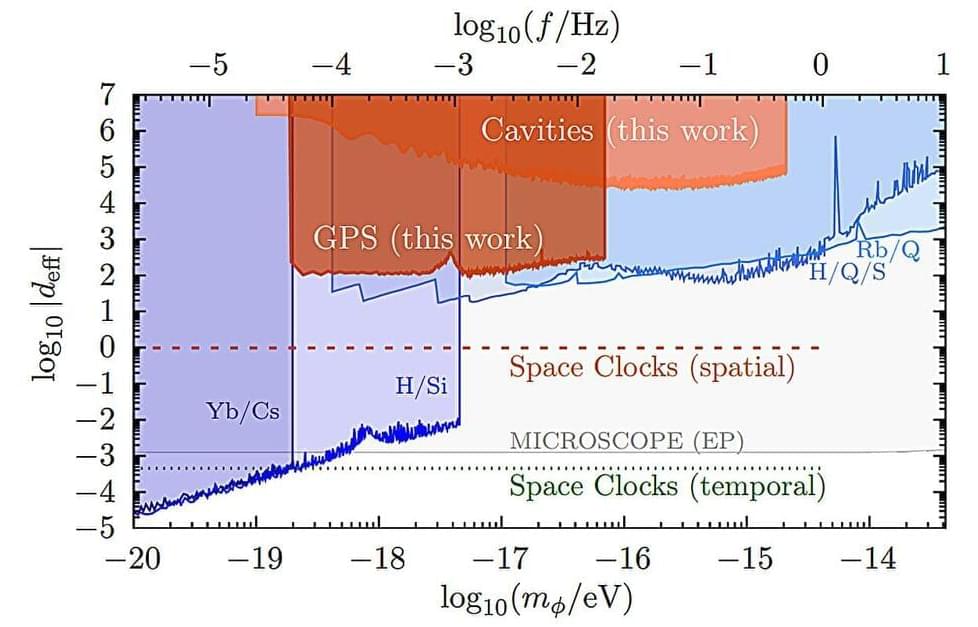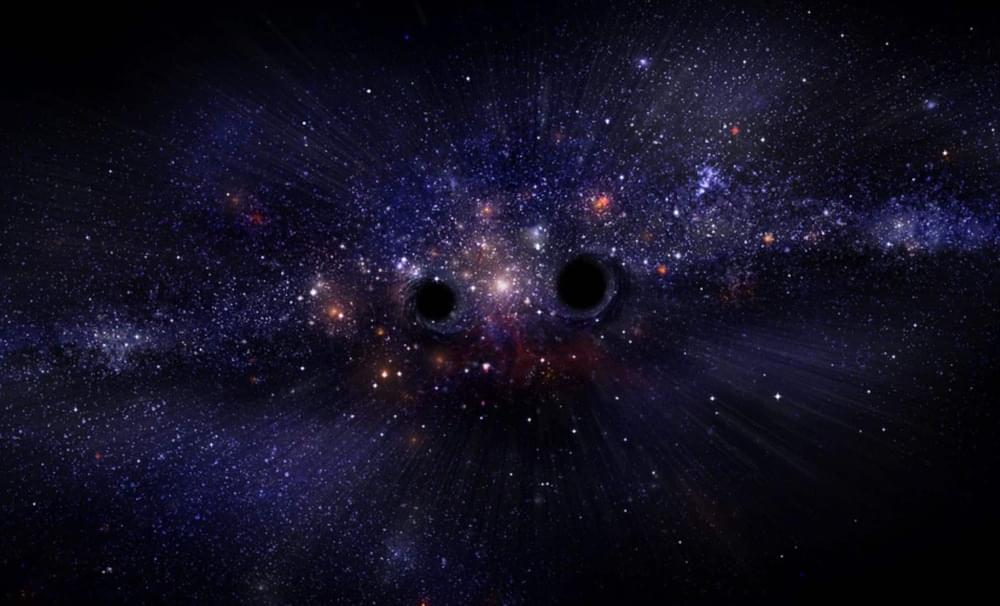In an article published in Physical Review Letters on Thursday, scientists carried out an innovative study testing the existence of mirror asymmetries in our universe by studying the handedness of the gravitational-wave emission from black-hole mergers detected by Advanced LIGO and Virgo.
The pillar of modern cosmology—known as the Cosmological Principle—states that, when observed at large scales, the universe is isotropic and homogeneous. This is, all observers in the universe will roughly observe the same structures regardless of where they are or where they look. As a consequence, the universe must not display a preference for stuff that rotates clock or anti-clockwise but, which is known as “mirror symmetry.”
Einstein’s theory of gravity, known as General Relativity, predicts that massive bodies can produce a type of radiation known as gravitational waves, which consist of distortions of spacetime that travel away from their sources at the speed of light. Such waves are produced in some of the most violent events in the universe, like supernovae, black-hole mergers or the big bang itself.



